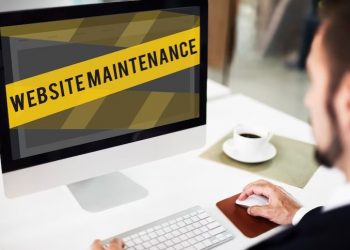Buying a business in New Zealand can be an exciting and rewarding endeavor, but it’s important to approach the process with careful consideration and a solid plan. Whether you’re a first-time buyer or a seasoned entrepreneur, there are several key steps you should follow to ensure that your purchase is a sound investment.
In this guide, we’ll walk you through 10 steps to buy a business in New Zealand, from conducting research and due diligence to finalising the sale and taking over the business. Following these steps can help you make an informed decision and set yourself up for success as a business owner.
1. Buying versus starting a business
Should you buy an existing business or start your own from scratch? The are several benefits to buying an existing business, if the business is healthy and profitable then you can step into a role where you are instantly generating revenue and products, services, suppliers and customers are all in place. Because of the time and money that has gone into the setup of the business you are buying, you will pay more for the business purchase. Business revenue, goodwill, current stock and business assets will all come into the purchase price of the business.
You can potentially start a new business for less than buying a business however your revenue will take some time to build to generate enough profit to cover your expenses and wages/salary. Usually when you start a business you will need additional cashflow funds to cover the costs of your expenses for at least 1 month before you receive income from your products or services.
2. Finances and security for buying a business
As a general rule, when you buy a business you will need personal assets to use a security against any money you need to loan to purchase your business. A lender will need to know if for any reason your business fails then they have a way to retrieve the money they loaned to you. Make a list of what you have available as security for a loan (if you need a loan) and note the total value of your assets. You can borrow up to 80% of your asset(s) value.
Assets you can use as security for purchasing a business can be personal vehicles, tools and equipment or property. You can also use assets within the business you are purchasing as part of the security if the business has assets a lender will accept. A lender may add a General Security Agreement (GSA) over the business where all business assets are included as security and the lender is the first interested party over those assets..
If you have property you will need to use a property Loan to Value Ratio of less than 75% to use the property as security for your business purchase. Your LVR can be calculated by minusing the equity in your property from value of your property then dividing it by the value of your property.
For example: You have a property valued at $300,000 with a mortgage of $200,000, giving you equity of $100,000. ($300,000-$100,000) ÷ $300,000 = 67%
3. What category of business are you going to buy
When buying a business it is important to think about what industry you want to be operating in. Do you have knowledge of a particular industry that you’re passionate about? Being passionate about your category of business can be hugely beneficial because you will have knowledge of the industry and will potentially find operating and working in the industry easier and more enjoyable. If you are looking at purchasing a cleaning franchise for example, but you hate cleaning, you might find your excitement about running your new business wanes quickly and you end up in a position where you are not enjoying your day to day work.
If you are passionate about a particule industry or job and have knowledge of it, see what opportunities are available to you, research existing businesses and see who your potential competition is, what products and services do they offer, what stands out to you most about each business, are there things you think you could do better?
Remember buying a business can take time and if you don’t find the right business for sale right away, don’t worry, keep researching and monitoring what is available online and you can enquire as new opportunities arise.
4. Make a plan for buying your business
Now you know how much you can afford to spend and what category of business you want to buy you can make a plan moving forward. Write down your ideal purchase price and business category + related categories that you may also enjoy working in. This will give you a solid base to start doing your research on businesses available for purchase and help you list current opportunities available.
Make a list of what is important to you in running a business and also what aspects of the business you want to look at when considering purchasing.
- How much is the business earning per month?
- What is the purchase price of the business?
- Is it profitable or is it struggling to make ends meet?
- Why is the owner selling the business?
- How long has the business been operating?
- Where is the business located?
5. Make contact with the business owner
Once you have found a business that you are interested in buying and it ticks most of the boxes for you, you’ll need to contact the owner and arrange to meet and/or request further information for review. Even a phone call can give you valuable information to help assess the purchase further, make sure you have a list of questions you want to ask so you get the most out of the contact with the owner. If at all possible it is a good idea to visit the business premise either after hours or during open hours to get a better understanding of what is involved in day to day operation, see the business assets (machinery, equipment, stock) and get an overall feel for the business.
When speaking with the business owner it is important to understand why they are selling. If the business is making good profits what is the reason for selling? How has the business grown over the time it has been trading? Is there room for further growth? Is there only one source of revenue or does the business generate revenue from multiple sources?6. Look at business financials
The financial data will give you insight into the overall financial performance of the business and a black and white view of how healthy it is. Although purchasing a business that is performing well and making profits would be ideal, it is important to look at the reasons a business may be under performing and understanding why and what could be done better to increase its revenue.
The current owner may have lost interest, only be working on the business part-time or just been out of their depth when running the business and not had the knowledge, skillset or support to make it profitable. So when you look at business financials and see lossess or minimal profits, step back and take a look at the bigger picture to get a better idea on why the financials look like they do.
Depending on the age of the business, the business owner should be able provide you with some or all of the following to help you assess the financial data you need to make a sound decision on purchasing the business:
- Financial report
- Profit and loss report
- Balance sheet
- List of assets and values (stock, machinery, equipment etc)
- Current suppliers
- Bank statements (at least 3 months)
- Income tax returns, gst returns
- Customers and client contracts in place
7. Assess the purchase price and make sure the business valuation is correct
Making sure the business you are considering buying is priced correctly is an important part of the purchase process.
- How did the seller value the business?
- What business assets are there?
- How much business debt is there?
- What is the annual turnover?
- What does the balance sheet look like?
- Is there equity in the business?
- Has customer goodwill been calcualted in the purchase price?
- How much work has gone into setting up suppliers and sales channels?
- Are current contracts ongoing, what client contracts are in place and when do they expire?
These aspects all come into play when placing a value on a business. You should consult your accountant, a financial advisor and family/friends who have knowledge in buying a business before making a decision on whether the purchase price is reasonable.8. Enquire about a loan to buy the business
If you find a business you think is the one for you, you’ve spoken to the owner and seen financials, and are happy with the purchase price, the next step is to look at your finance options to purchase the business. If you have enough savings to purchase outright then well done!, you don’t need to consider this step.
You can talk to your bank, speak directly with non-bank lenders or use a business loan broker like Compare Business Loans to discuss your business loan options. Lenders can offer different interest rates and will all have different requirements to assess your business purchase so it is important to consider all your business loan options and see which one is most suitable for you to get a business loan approval.9. Make an offer and negotiate with the seller
You’ve done all the research you can and are happy with everything so far, its time to make an offer and perhaps negotiate with the seller if you have questions or concerns about any aspects of the business. You will need to consider the handover as well, will the owner work with you for a certain period to help with the transition? Will current employees stay on? When do their employee contracts expire?
Make sure you have the support around you to make an educated decision on whether to proceed with the purchase or not. Take your time here, it can be tempting to jump in but you’re best to revaluate everything at this point to make sure you are happy with the business and know you have the skillset to competently run it.10. Complete your business purchase
And you’re done! You have successfully analysed a business for sale and made a sound, educated decision to purchase it! A purchase agreement can be signed and you can proceed with the transition from buyer to owner. Well done and enjoy your new business ownership journeyBusiness Loan NZ Quick Links









